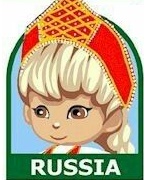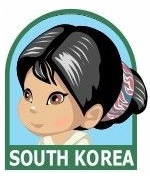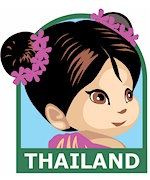Uproar in Canada with the attack on the deputy prime minister. Video captured the moment the man starts yelling and cursing at Freeland as she enters the elevator.
Canadian Prime Minister Justin Trudeau today condemned the verbal abuse of Deputy Prime Minister and Finance Minister Chrystia Freeland, calling it "extremely disturbing harassment," noting that it was not an isolated incident.
"We're seeing more and more people in public life, people in positions of responsibility, particularly women and Canadians who come from minorities or from different community groups, being targeted almost because their voices are being amplified," Trudeau said in his speech today. "We are seeing a reaction (…) We have to ask ourselves what kind of country we are and what kind of country we want to be," he continued.
In video of the incident, which was posted on Twitter late Friday night, Freeland is approaching the elevator at a city hall building in Grand Prairie, Albera, when a man starts yelling at her. "What the hell are you doing in Albera?" he is heard saying as she enters the elevator. He called her a "traitor" and verbally abused her. The video has hundreds of thousands of views.
Freeland was born in Alberta and toured the province to meet with officials, businessmen and workers. "What happened yesterday was wrong. No one, anywhere, should be forced to put up with threats and intimidation," he wrote on Twitter on Saturday.
Canadian politicians from all political parties condemned the verbal attack.
This incident is the latest in a series of verbal attacks against women in Canada – among the victims were activists and journalists, as reported by APE-MPE. A group of reporters has been releasing private and anonymous e-mail messages for weeks that contain threats of violence, sexual assault and misogynistic language.
Top 10 Shocking Facts About North Korea
On the northern side of the Korean peninsula, there sits the Democratic People's Republic of Korea, best known as the East Asian country of North Korea. To the world outside of its proverbial wall, the country appears to be a radical land regulated by strange rules and a constant fear of death or internment. To portray just how extreme North Korea can be, we dug up these 10 shocking facts.
10. Mandated Hair Styles
Don't adjust your volume, you definitely heard that right! According to sources in Pyongyang, men in North Korea are being prompted to rid themselves of their long hair and take on a cut similar to the mushroom cloud sported by current leader, Kim Jong-un. Men with hair over .8 inches or 2 centimeters in length are allegedly being targeted by North Korean authorities. Not to leave women out of the insanity, they, too, have been directed to take on a certain style - that of Jong-un's wife, Ri Sol-ju. Prior to this directive, the country imposed approved haircuts for men and women, with men being able to choose between 28 different cuts and women stuck with only 14 options.
9. Teachers and Accordions
During the 1990's, if you wanted to be a teacher in North Korea, you had to possess a rather specific skill. As told in the book Nothing to Envy, which depicts the lives of multiple
North Korean citizens over a period of 15 years, teachers were required to be able to play the accordion. Dubbed the "people's instrument" for its more compact size and portability, teachers would utilize the instrument in the middle of class, often engaging their students in a little musical session. It's said that before being awarded a teacher's license, the intended educator was required to pass an accordion exam.
8. The Propaganda City
If you situate yourself in a demilitarized zone near the border of North and South Korea, you'll be able to glimpse a rather serene looking North Korean city. Believed to be a decoy put in place to attract defectors from South Korea, Kijong-dong is one of North Korea's more elaborate ploys. What appears to be a peaceful village complete with an attractive array of essentials like a school and hospital, Kijong-dong has been given the nickname of "Propaganda Village." North Korea claims the city, which was built in 1953, sports 200 residents and economic success. Until 2004, Kijong-dong was outfitted with speakers that broadcast praise of North Korea and invited unhappy South Koreans across the border.
7. Media Censorship
No matter what part of the world you live in or the restrictions placed upon what you can and cannot see on TV or hear on the radio, chances are the censorship you're dealing with is nothing compared to that in North Korea. Televisions and radios purchased within North Korea are required to be registered with the police and are pre-tuned to local stations, of which there are 4 television channels and 2 main radio stations. Though there is "freedom of speech and press" on the surface, the government closely watches media outlets to ensure negativity about the country and its leader never reach the public. Only with government approval can a home be granted access to the internet, otherwise citizens must use internet cafes or hotels.
6. Assigned Employment
As most of us made our way through the later years of our schooling, there was always an emphasis on that one nagging question: "What do you want to do with your life?" If you want to rid yourself of the need to choose your career path, head on over to North Korea! Once upon a time, if you weren’t a person of substantial wealth or came from a prestigious family, job assignment was a government task. Citizens were placed in different industries based on current needs unless, of course, they had bribery money to get out of doing any work. Children weren't encouraged to follow their dreams and were instead indoctrinated with the belief that their own purpose was to serve the greater good of North Korea.
5. Making Students Pay
In many countries across the globe, education comes at a cost. For some, like the United States, it's a yearly tax. In others, like North Korea, that cost comes in the form of keeping the school supplied with the essentials, and by essentials, we don't just mean pencils and workbooks. It's said that parents with children in school are responsible for providing everything from building materials to desks. Even more shocking is the building's cost of heating fuel, which, too, is passed on down to parents. To keep the education system - which North Korea alleges produces a 100% literacy rate - students may also be used to gather useful, discarded materials. As they say, money talks and parents are able to bribe teachers into getting their child out of these more menial tasks.
4. A Ban on Sarcasm
Sarcasm is such an incredibly useful aspect of modern speech that to think of a world without it would be depressing. North Korea, however, doesn't have the same viewpoint on sarcastic phrases and, in an effort to continue the oppression of its people, purportedly warned against the use of "hostile" speech. The examples given by a state security official that disseminated this insane proposal were not just general sarcastic statements, but rather sarcasm that appears to paint the country's leader or the country in a negative light. Essentially, the
North Korean government is a little paranoid that any praise its people are giving it is less than honest.
3. What Year Is It?
We all relatively know how old mankind is, but many cultures across the globe can't seem to agree on what year we're currently in. Probably the most compelling of these differing calendars is that of North Korea. Known as the Juche calendar, named for the ideology developed by former leader Kim Il-sung, this method of numbering states that North Korea is, as of 2016, only in year 105. The Juche system, which was implemented 3 years after the leader's death in 1997, uses Kim Il-sung's year of birth, 1912, as the starting point. Anything prior to 1912 is counted using the Christian method of calendaring.
2. Three Generations of Punishment
North Korea may have taken the concept of the Sins of the Father a bit too far by making it so that not only the sin passes down to the next generation, but so too does the punishment. When an individual commits a crime, likely something more political in nature, they not only risk spending a good portion of their life imprisoned but also put their family at risk of receiving the same sentence thanks to
North Korea's three generations of punishment. In 1972, Kim Il-sung implemented the cruel act, claiming that three generations must suffer the same punishment in order to weed out the corrupted bloodline.
1. Active Concentration Camps
Where there are prisoners, there must be a place to keep them housed. North Korean criminals, even those held on the "three generations of punishment" decree, can be subjected to life in a concentration camp, where they'll be met with deplorable conditions not too dissimilar to the German camps during World War II. According to former inmates, prisoners are subjected to conditions that leave them famished and forced to survive on dirt, but that's not even the worst of it. Survivors have reported bearing witness to random executions, various forms of torture, dismemberment, and experimentation. Hoeryong concentration camp, otherwise known as No. 22, was one of the country's more notable political prison camps before its closure in 2012 that was known for performing water torture, hanging, a pigeon torture as well as using prisoners for novice surgeons to practice on.
Top 10 Amazing Facts About Bolivia
We’re back on the road again, crossing the exotic lands of South America for a stop off in Bolivia to see exactly why over one million people visit these exotic lands every year! So, fry up your salchipapa and grab a glass of mocochinchi as we explore this multi-ethnic and diversified country with these ten amazing
facts about Bolivia.
10. Cuisine of Bolivia
Vegetarians and pet owners look away now – Bolivia’s specialty dish is... guinea pig! Guinea pig, or cuy, has been a traditional part of the Bolivian diet for many years as it is a major source of protein and is also considerably easy to raise. If you don’t have the stomach for guinea pig, other dishes on the menu include salteña, an empanada-style pastry filled with beef, pork or chicken, or Silpancho, a super filling dish consisting of rice, potato, meat, egg, vegetables and herbs. Feeling a little parched? Try a traditional licuado, a water or milk-based beverage blended with your choice of fruit.
9. World records
When it comes to setting world records, Bolivians are all about size. The largest charango - which is a South American guitar - was created in 2004 measuring 20-feet or 6.1-meters long, and the largest morenada dance, or Bolivian folk dance, was achieved in 2014 involving an incredible 3014 people. Bolivia also boasts three of the largest musical ensembles – 2,317 panpipes in 2004, 1,166 trumpets in 2006, and 1,157 charangos in 2009.
8. Famous Bolivians
Bolivia boasts many well-known faces, and you may recognize actresses Carla Ortiz, Tanya Callau and Ximena Herrera from such movies as Forgotten and The Princess Diaries 2. Bolivian football stars include Gilbert Álvarez and Carlos Saucedo, who have both played for their national team. Maria Fernanda Álvarez is also a recognizable Bolivian known for her tennis prowess and you may even recognize Claudia Balderrama, who competed at the 2012 summer Olympics as a race-walker. Bolivia is also the birthplace of several internet stars, including amazing YouTubers Elias Ayaviri, Favio Apaza-MansOn, and VicenticoTD, and Blogger Andrea Roman. Inventions include the Tiki-Taka - or click-clackers - a toy to both entertain and test your balance and skill; Coca Lorini, a syrup-type elixir that predates and paved the way for Coca-Cola, and Nit Occlud, a medical device for treating infant heart problems.
7. Stunning Sights
Bolivia’s most stunning sight is the Salar de Uyuni, a salt flat that surpasses any other. At over 4,000 sq-miles (10,000 square km), it is the largest salt flat in the world and measures roughly the size of Jamaica. Travelers have been known to spend days exploring this giant mirror-like wonder. Visitors also tend to flock to Lake Titicaca, South America’s largest lake by volume. Straddling the border with Peru, Titicaca measures up at 3,232 sq-miles (8,372 square-km) and is considered by many locals to be sa cred.
6. Sacred Lake Titicaca
Sacred Lake Titicaca has incredible origins and is said to be the birthplace of the region’s ancient civilization. The Inca myth states that the god Con Tiqui Viracocha, emerged from Titicaca, bringing with him a small group of humans. Under his orders, the sun, moon, and the stars rose into the sky, creating the universe which he populated with people created from stone. As the human populace was brought to life, Viracocha commanded them to populate the world, creating the ancient civilizations that predate the modern world. According to the Incas, after death, their spirit will return to Lake Titicaca for eternity.
5. Sports of Bolivia
As is the case with most South American nations, Bolivians are huge football fans, and the sport has an almost religious following. Club Bolívar is the most successful team in Bolivia and is currently at the top of the league. It’s also the only Bolivian team to reach the semi-finals of the Copa Libertadores tournament, the major South American club tournament. Bolivia’s love of football is so strong that they bring that love indoors with a version of the sport called Futsal, or futsala, which can be played on a basketball court and uses smaller goals and balls and teams of only 5.
4. Bolivians and Nature
As of 2001, though 78% of Bolivia's population identifies as Roman Catholic, the nation's traditions are more deeply rooted in their respect for nature rather than the religion they follow. Pacha Mama, or Mother Earth, is still worshiped by many who offer sacrifices of llama to bring good luck and fortune. Bolivian’s have so much respect for nature in fact, that in 2010 the government passed the Law of the Rights of Mother Earth, which grants nature the right to pure water, clean air, and to live free of contamination.
3. Bolivia’s festivals
Bolivians enjoy many fun-filled fiestas throughout the year, starting with the Alasitas Fair in January. The month-long festival is dedicated to giving gifts to Ekeko, the god of abundance. One quirky festival that sounds less enjoyable than most is Tinku. Loosely translating to “violent encounter,” brutal ritualistic combat erupts in the hill-towns of Bolivia once a year. Using fists and stones, participants supposedly fight to honor Pacha Mama, but nowadays it’s more to prove bravery. Warfare is so vicious that deaths are reported each year, meaning you’ll want to avoid the Bolivian highlands during early May if you plan to vacation there.
2. Bolivia’s Battle for Independence
Bolivia’s independence was hard fought for against the Spanish and 16 years of bloody wars were endured so that Bolivia could have the right to govern itself. Before becoming its own nation, Bolivia was part of the Spanish Río de la Plata viceroyalty. After failed revolutions in Sucre and La Paz in 1809, Spanish authorities continued to reign. But, as the Spanish American wars of Independence raged across the continent, Bolivians continued to fight for their freedom under the campaign of Simón Bolívar. Support came from the north via Bolívar’s friend and fellow Venezuelan Antonio José de Sucre, for whom the capital is now named. Independence was finally declared on August 6th, 1825, and Bolivians celebrate each year with parades and fireworks.
1. The Naming of “Bolivia”
Born in 1783 to a wealthy Creole family in Venezuela, Simón Bolívar was a military and political leader who played an integral part in the independence of Venezuela, Bolivia, Ecuador, Peru and Colombia. Upon its independence, the country was granted the right to a name of its own. Initially, the Republic of Bolívar stuck until congressman Manuel Martín Cruz declared that “if from Romulus comes Rome, then from Bolívar comes Bolivia”. The new name was made official in 1825, but was changed to “Plurinational State of Bolivia” in 2009, to recognize the diversity and multiple ethnicities spread throughout.
Top 10 Amazing Facts About China
Are you ready for another journey across the globe, fellow Archivists? For our next stop, we're going to a place that covers 3.7 million square-miles (9.6 million square-km) of the Earth and boasts the largest registered population at 1.4 billion people. China is a fascinating land filled with so many intriguing tidbits that it was quite the renwu (yen-woo) to narrow down a list of only the top ten amazing
facts about the China Red Dragon.
10. A Longstanding Feud
During the Tang Dynasty, Chinese and Japanese relations were amicable, but it was a pleasant time that wouldn't last forever. Though the nations feuded over control of Korea, there was a relative peace between the two. Unfortunately, that wouldn't last forever, and when Commodore Perry butted into Japanese affairs in 1850, the empire was forced out of isolation and quickly became a military power, surpassing China. Though China started to admire Japan, radicals in the budding nation felt its Asian counterpart was inferior. This was most evident in the early 20th century, when Japan pushed into Chinese territories, sparking the Second Sino-Japanese War. Even today, anti-Japanese sentiment is rampant in China - and vice versa for Japan.
9. The Cuisine of China
It's time to clear something up. That take-out you get from the Flaming Panda every Friday night isn't exactly Chinese food. Sure, it's generally inspired by it, but it's very Americanized. In 2014, Business Insider did a piece on the dishes you should order from a Chinese restaurant, comparing them to the American versions. For instance, the crab rangoon you get isn't a Chinese delicacy, but Xiao Long Bao from Shanghai, which is filled with real crab or pork, is. As much as you may love Fortune Cookies, their country of origin is - you guessed it - the United States of America. Chinese take-out is considerably heavier than authentic Chinese food, as seen with the American-style egg roll and lo mein noodles. Instead, go for cong you bing, or scallion pancakes, and zha jiang mian (Ja jee-ang mee-en), a lighter noodle dish with stir-fried pork and fermented soybean paste.
8. Famous People of China
When you think of famous people from China, you may immediately think of General Tso, the man that created the popular chicken dish. Except he didn't, and Zuo Zongtang (Zow Zong-Tang) wasn't what we'd call "famous." Instead, you should think of people like the Dalai Lama who, despite being born in Tibet, was exiled to India and the ancient Chinese teacher and philosopher, Confucius. More modern recognizable names include Bruce Lee, Yao Ming, Jackie Chan, John Woo, Jet Li, Ming-Na, Zhang Ziyi, and Chow Yun-fat.
7. The Cave People of China
Not only are there an abundance of caves scattered across China's landscape, many of them are inhabited by people. According to a 2012 report by the Los Angeles Times, an estimated 30 million people in China live in caves. That's approximately 2% of the population. A bulk of that populous can be found in the Shaanxi province, which is known for porous and soft soil. Even well before modern man, the Zhoukoudian (Jo-Ko-Dee-On) cave system was inhabited by the Peking Man. One downfall of living in a cave, says Ren Shouhua (Show-Wa), who grew up in a cave, is that you aren't guaranteed modern conveniences, though some ritzier dwellings are equipped with electricity and running water.
6. Panda Diplomacy
Wouldn't the world be a better place if pandas could be gifted to other countries as a symbol of good faith and appreciation? Hate to break it to you, but panda gifting isn't the fix-all for the world's issues as China has implemented "Panda Diplomacy" dating as far back as the Tang Dynasty. The first use of the practice was when Empress Wu Zetian gifted pandas to the Japanese emperor...and we see how that ultimately turned out. As recently as 2014, Panda Diplomacy has been in practice with the last exchange being two pandas that were sent to Malaysia in celebration of 40 years of diplomatic ties.
5. Chinese Inventions
As much as people from the U.S. may joke about items "Made in China," many of the inventions today came from brilliant Chinese minds. Americans should, at the very least, praise China for its hand in creating gunpowder, which was a strange side effect created during the search for human immortality. We also have China to thank for silk, umbrellas, the compass, deepwater drilling, and even paper. The process of fermentation, which is used in alcohol production, is also said to have roots in ancient China.
4. China and Sports
We've covered much of the world but we're most excited to get to China so that we can talk about one of the nation's most popular sports - Pingpang. You may know it better as table tennis or ping pong. There was a time when ping pong was the only sport in China, and was the equivalent to football in the United States in popularity. If you thought Panda Diplomacy was nuts,
China and the United States underwent "Ping-pong diplomacy," where the two nations exchanged table tennis players in the 1970s. Other sports that have a big pull in China include badminton, basketball, and soccer.
3. China's World Records
With a population of more than 1.4 billion people and growing, there are bound to be quite a few world record holders; and according to the Guinness World Records, in China, there are more than we have time for. In June of 2012, Liu Yang became the first female
astronaut from China. In 2011, Kaifeng City in the Henan Province broke the record for longest carpet of flowers, measuring 6,597 feet and 8 inches (2,011 m). May of 2012 saw the record of the largest trouser mosaic, made from 23,171 trousers, and, in 2006, China was crowned for having the most hospitals. The list goes on and on, like earning a record for the largest producer of energy, highest consumption of cigarettes and honey, and the longest distance on a tightrope with a motorcycle with no front wheel.
2. The One-Child Policy
From 1979 to 2015, China implemented a policy that forced Han Chinese families to restrict their family size to one child per household. The fear was that China's population would grow to a point where an overpopulation catastrophe was inevitable. Limiting families to one child was believed to eventually have a positive effect on social, economic, and environmental strains. Families that didn't adhere to the policy faced income-based fines. On January 1st, 2016, the law was changed to a two-child policy, allowing families to have two children. The policy led to the creation of the term "black child," which is a baby that's born outside of the policy and not registered with the national household registration system.
1. The War on Pollution
If nations are going to lead the charge against pollution, China should definitely be one of the principal factions. When China hit a period of growth around the early 2000s, its increase in industry also created an exponential increase in carbon dioxide emissions, nearly doubling its production within a matter of years. Realizing something would have to be done, the nation started to combat pollution in an aggressive manner. Since 2015, China led the world in electronic vehicle sales and saw a drastic increase in use of solar panels. To further limit its production of pollution, which is estimated to cause 1.6 million deaths per year in the nation, China has also been pursuing wind energy and changing from coal to hydrogen.
10 Big Facts About The USA
10. President McKinley almost always wore a red carnation as a good luck charm. In 1901, moments after giving the flower to a little girl, he was assassinated.
09. There are tiny hidden images of an owl and spider hidden on the $1 bill. Many claim they are symbols of a Masonic club with several presidential members.
08. The US government are still paying 2 civil war pensions to the children of soldiers. They receive $867 a year. The last widow of the Civil War died in 2003.
07. In 1950 Tootsie Rolls were accidentally sent to fighting US Marines instead of ammunition. The Battle of Chosin Reservoir was lost when a request for the snack - codeword for ammunition-was taken literally.
06. 14,000 firework displays take place during 4th July celebrations. In 2013, 7400 were hospitalized with firework related injuries, with sparklers the number 1 cause.
05. John Adams & Thomas Jefferson both died on 4th July 1826 - exactly 50 years after signing the Declaration of Independence. Adams’ last words were “Jefferson Survives”, unaware his political rival had died hours earlier.
04. The
50-star USA flag was designed for a school project by Robert Heft, aged 17. His B- grade was raised to an A after chosen by President Eisenhower.
03. In New Jersey it is illegal to commit murder while wearing a bulletproof vest. In Ohio it is illegal to get a fish drunk & hunt whales on a Sunday.
02. In 1980 Saddam Hussein was given the key to the city & made an honorary citizen of Detroit. The honor came after he paid hundreds of thousands of dollars to clear the debt of a Detroit Church.
01. The
American National Anthem, The Star-Spangled Banner, was composed by a British man. Francis Scott Key set his lyrics to the tune of a drinking song played in a London social club.





















